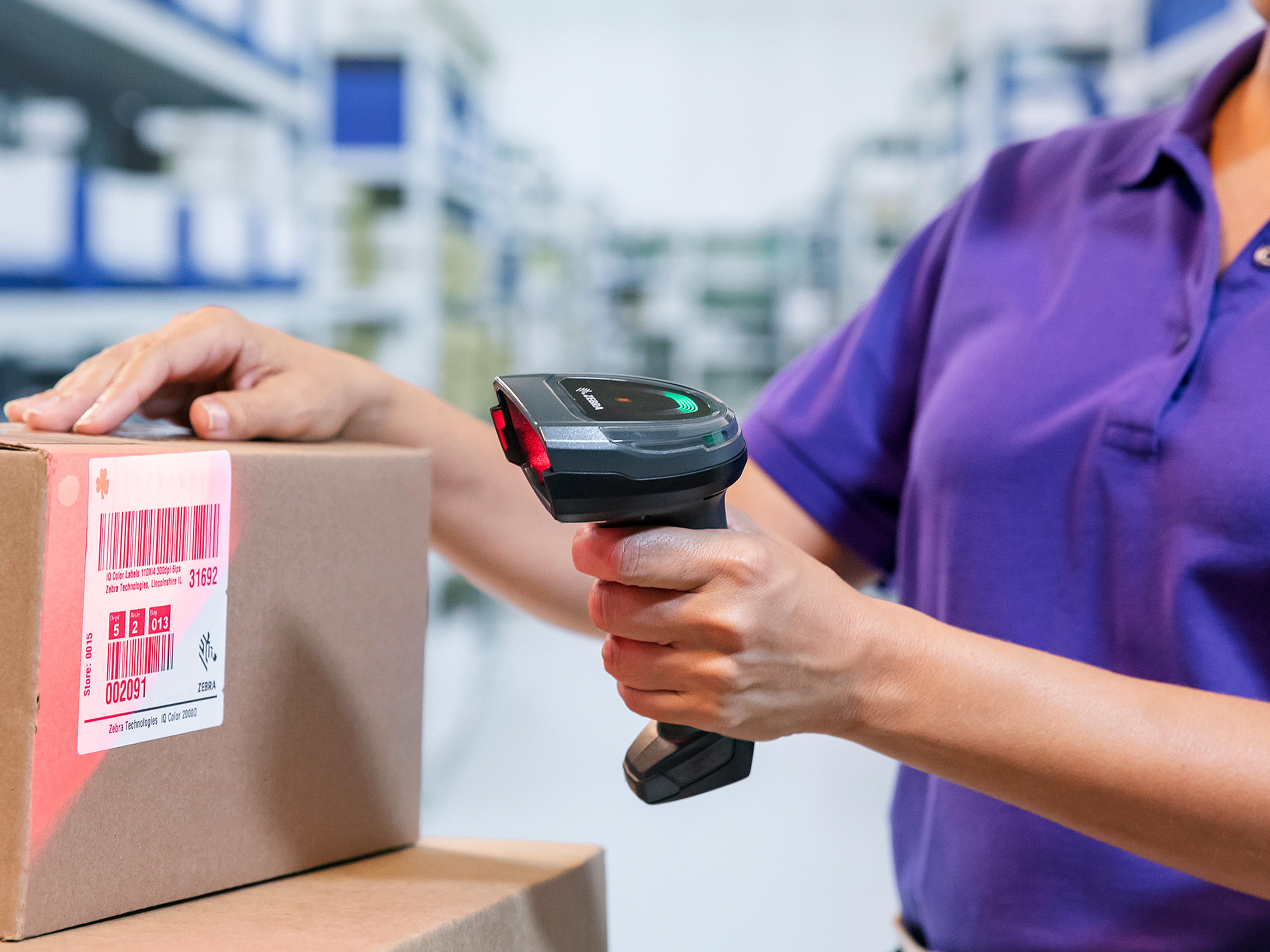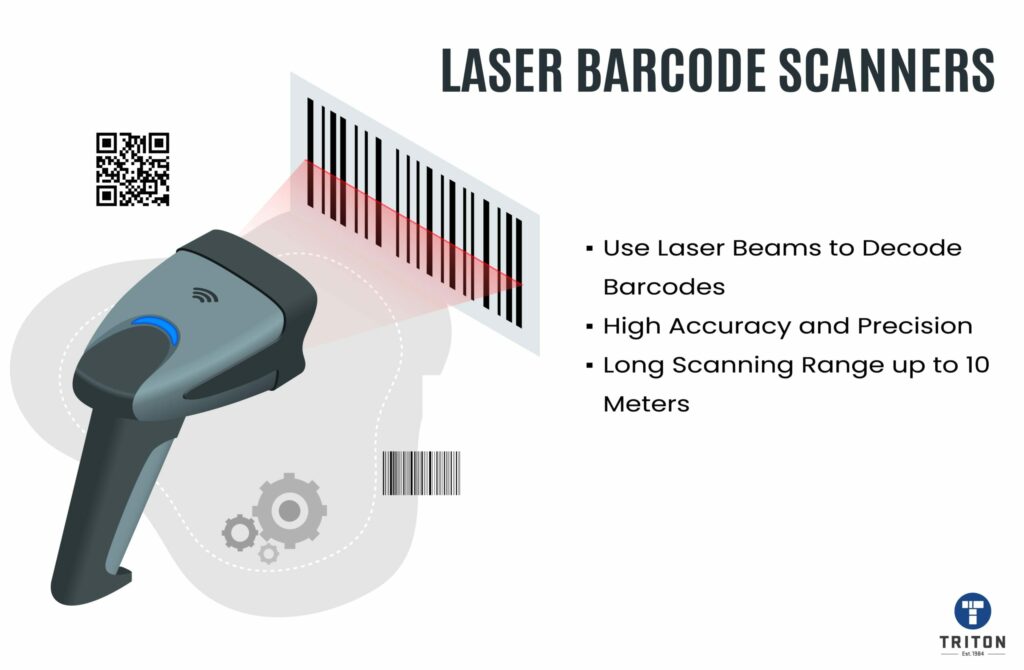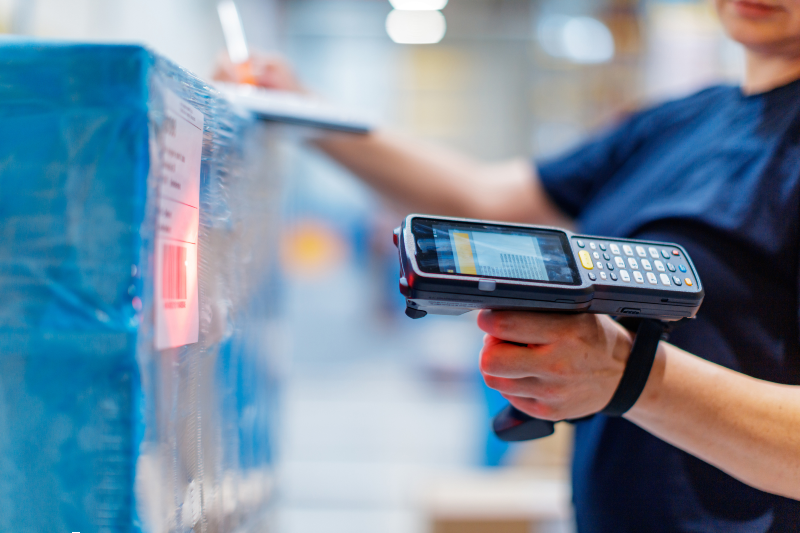Lightweight Barcodes Scanners for Efficient Scanning
Lightweight Barcodes Scanners for Efficient Scanning
Blog Article
Picking the Right Barcode Scanner for Your Company Requirements
Selecting the appropriate barcode scanner for your service requires a nuanced understanding of your specific functional demands and ecological problems. Variables such as scanner type, speed, and compatibility with existing systems play a critical role in establishing the best option.
Comprehending Barcode Scanner Types
When it pertains to selecting a barcode scanner, understanding the various kinds offered is vital for meeting particular service requirements. Barcode scanners can be categorized right into a number of types, each designed for various applications and atmospheres.
Handheld scanners are the most usual, using mobility and ease of usage, making them appropriate for retail and inventory monitoring. They commonly link via USB or Bluetooth, giving versatility in operation. Fixed-mount scanners, on the various other hand, are made for high-volume scanning applications, typically found in production line or checkout counters. These scanners are installed in a stationary position, enabling rapid scanning of numerous products in sequence.
An additional type is the mobile computer system, which combines scanning abilities with calculating power. These devices are ideal for field procedures or storage facility monitoring, allowing information collection and real-time stock monitoring. In addition, there are industrial scanners that are developed to withstand severe settings, such as extreme temperatures or direct exposure to dirt and moisture.

Trick Attributes to Consider
What important functions should services focus on when choosing a barcode scanner? First and leading, scanning rate is critical, as faster scanners improve operational efficiency, especially in high-volume environments. The scanner's capability to check out numerous barcode layouts is additionally crucial; guarantee it supports prominent types like QR codes, UPC, and Code 128 to accommodate varied inventory things.
Toughness is one more crucial function, particularly for services in sturdy setups. Search for models that are built to hold up against declines, dust, and wetness. Furthermore, think about the connectivity alternatives offered; whether you choose USB, Bluetooth, or Wi-Fi, the right connection can boost assimilation with existing systems.

Evaluating Your Business Atmosphere
To effectively choose a barcode scanner, organizations should take supply of their specific functional environment. This evaluation consists of assessing the physical layout of the work area, the nature of the items being scanned, and the normal problems under which scanning this contact form occurs. For circumstances, a retail setting may need portable scanners that can quickly process purchases at the checkout, while a stockroom setting may gain from ruggedized scanners designed to withstand harsher problems.
Furthermore, think about the quantity of scanning called for. High-throughput environments might require sophisticated scanning modern technologies, such as fixed-position scanners or smart phones that can operate effectively in hectic circumstances. The combination abilities with existing supply management systems also play a vital duty; make certain the picked scanner can flawlessly get in touch with software application systems being used.
A scanner that meets existing demands might not be adequate as service expands. By completely evaluating these factors, companies can choose a barcode scanner that not just satisfies prompt demands however likewise sustains long-term functional effectiveness and adaptability. barcodes scanners.
Budgeting for Your Scanner
Having actually examined the operational setting and determined the certain demands for a barcode scanner, the next step entails careful budgeting to guarantee a smart monetary investment. Establishing a spending plan starts with figuring out the overall expenses related to the scanner, consisting of initial acquisition price, functional expenditures, and prospective upkeep fees.
When selecting a barcode scanner, consider the variety of available choices, from portable devices to fixed-position scanners, as costs can differ substantially. It is necessary to stabilize cost with capability; going with an extra affordable model may cause increased operational inadequacies if it does not fulfill your company requirements.
Along with the equipment, factor in expenses connected to software, training, and potential upgrades. While it may be alluring to minimize upfront expenditure, buying a top quality scanner that straightens with your functional demands can generate lasting savings through enhanced effectiveness and minimized downtime.
Last but not least, take into consideration the complete cost of ownership, which includes the scanner's life expectancy and prospective resale value. By thoroughly directory preparing your budget, you can guarantee that your investment in a barcode scanner will enhance your operational productivity and monetary performance.
Integration With Existing Solution
Integrating a barcode scanner with your existing systems is vital for optimizing its efficiency and making certain smooth procedures. barcodes scanners. A well-integrated scanner improves workflow performance, minimizes mistakes, and speeds up data processing. When selecting a barcode scanner, consider compatibility with your current software and hardware infrastructure, including your supply monitoring systems, point-of-sale (POS) systems, and business resource planning (ERP) remedies
Review whether the scanner makes use of conventional procedures such as USB, Bluetooth, or Wi-Fi, which can help with easy assimilation. Furthermore, evaluate whether the scanner's software application offers APIs or SDKs that permit customization and assimilation these details with proprietary systems. This is particularly important for organizations with special operational demands.
As your business grows, your systems should be able to accommodate additional scanners and take care of increased data quantities without considerable reconfiguration. Eventually, investing in a barcode scanner that perfectly incorporates with your existing systems will produce long-term benefits, enhancing precision, effectiveness, and total efficiency within your procedures.

Final Thought
In conclusion, picking a proper barcode scanner necessitates a comprehensive examination of various factors, including scanner types, necessary features, and the particular company setting. The right barcode scanner serves as a vital device in simplifying procedures and facilitating effective supply management.
Report this page